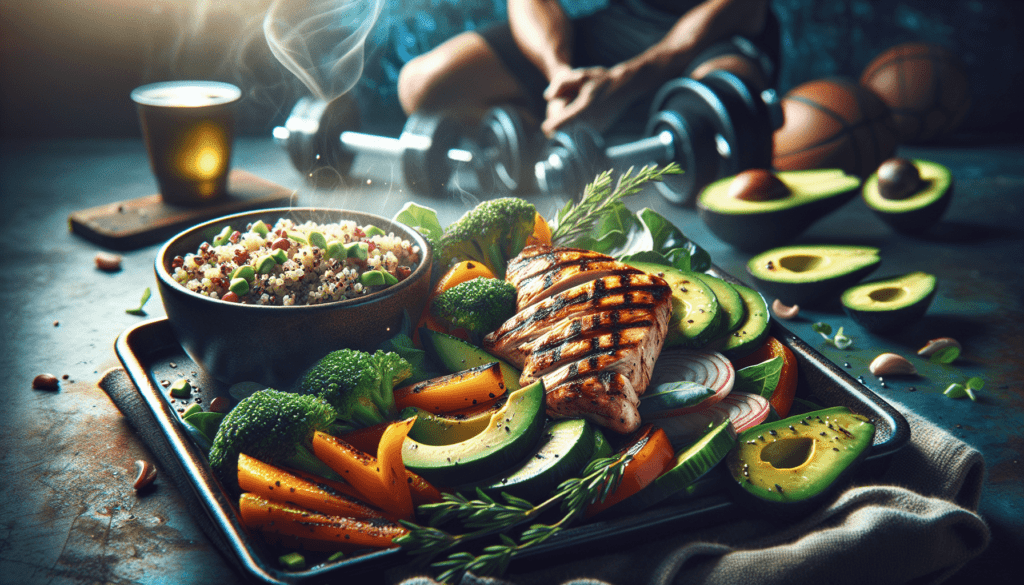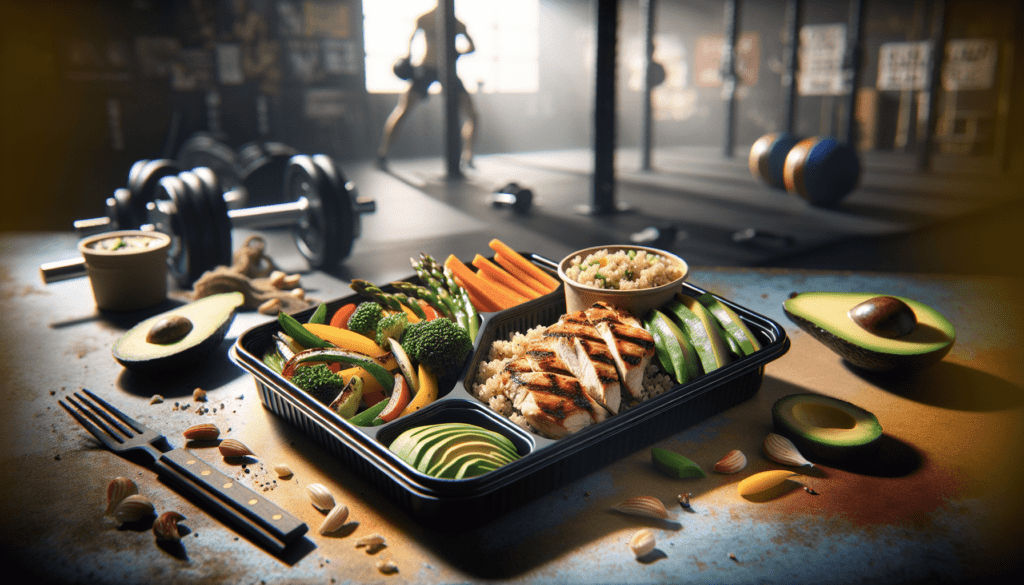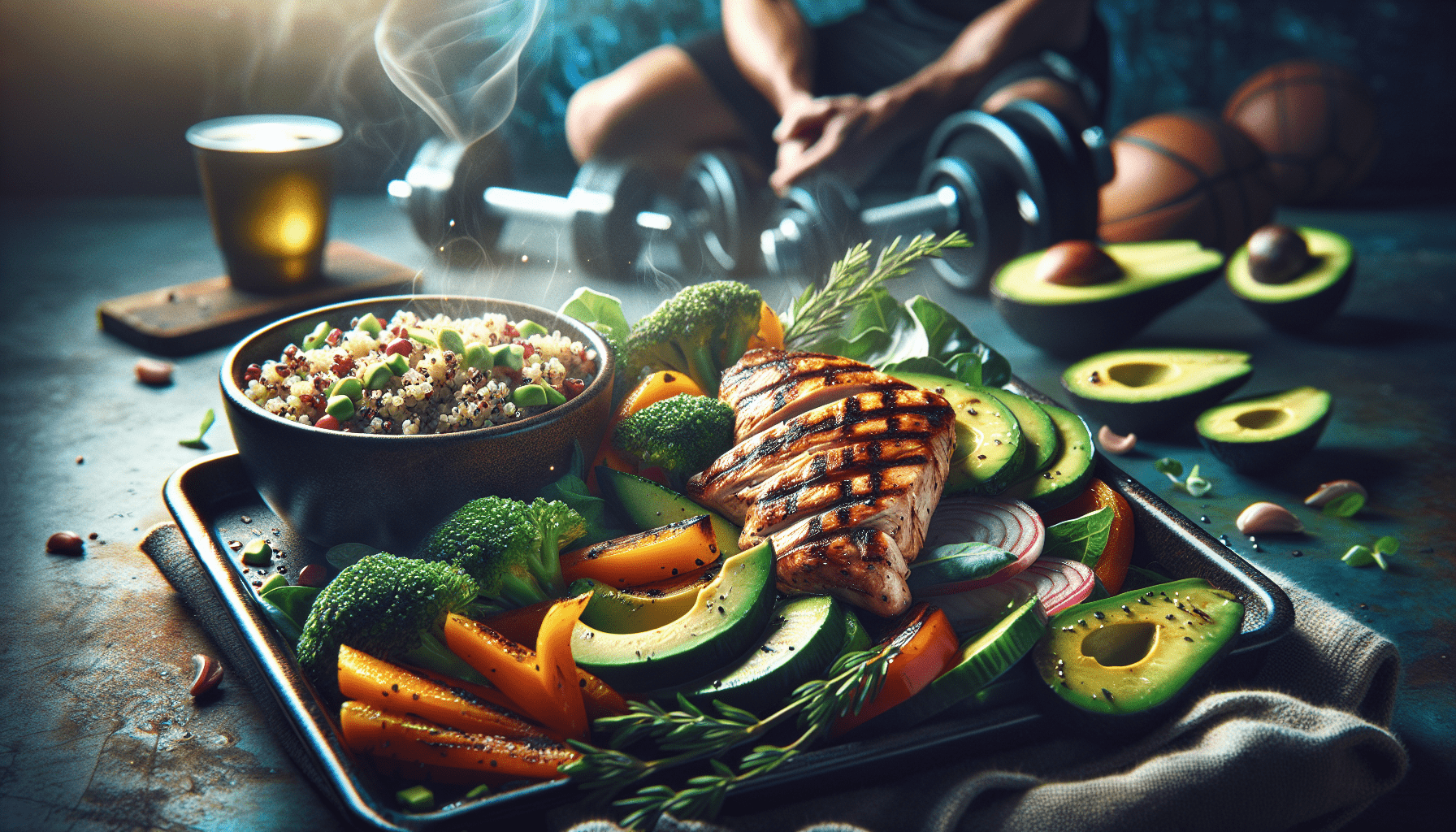Dive into the world of Mixed Martial Arts (MMA) with our insightful guide, “Essential Nutritional Tips For MMA Fitness And Conditioning.” As an MMA enthusiast or athlete, you understand that achieving peak performance requires more than just rigorous training—it demands a fine-tuned nutritional strategy. This article equips you with straightforward, effective dietary advice specifically tailored to fuel intense MMA workouts and recovery. From selecting the right balance of macronutrients to timing your meals for optimal energy, we’ve got the essential tips to enhance your conditioning and elevate your game. Do you ever wonder how mixed martial artists achieve peak performance and stay in top condition? Whether you’re an aspiring MMA fighter or just a fan looking to understand what it takes, proper nutrition is a pivotal piece of the puzzle. Believe it or not, your diet can make or break your performance in the octagon. So how do elite MMA athletes fuel their bodies for grueling workouts and intense fights? Let’s dive into some essential nutritional tips for MMA fitness and conditioning to help you reach your peak performance.

The Role of Nutrition in MMA
Why Nutrition Matters
In any sport, nutrition is the cornerstone of physical performance, and MMA is no exception. Proper nutrition allows your body to perform at its best by providing the necessary energy, promoting muscle recovery, and optimizing overall health. Imagine your body as a high-performance car; without the right fuel, you won’t get very far. Nutritional optimization can significantly impact your stamina, strength, and mental clarity in the ring.
Energy Demands in Mixed Martial Arts
MMA involves a combination of various athletic skills—strength, speed, endurance, and agility. To maintain these high-energy outputs, fighters need a calorie-dense diet rich in nutrients. Unlike the standard diet, MMA fighters need a carefully balanced intake of macronutrients and micronutrients to meet their rigorous training and recovery needs.
Macronutrients: Your Fuel for Performance
Carbohydrates: The Main Energy Source
Carbohydrates are your body’s primary energy source, especially during high-intensity activities like MMA. When you consume carbs, your body breaks them down into glucose, which is then used for immediate energy or stored in muscles and the liver as glycogen. During training or fights, your muscle glycogen stores become a crucial source of sustained energy.
Here are some carbohydrate sources that should be a staple in your diet:
| Carbohydrate Source | Examples |
|---|---|
| Complex Carbs | Whole grains, brown rice, oats, quinoa |
| Simple Carbs | Fruits, vegetables, honey |
| Fibrous Carbs | Leafy greens, broccoli, Brussels sprouts |
It’s a good practice to consume complex carbohydrates before your training sessions. Eating simple carbohydrates can be beneficial immediately after training for quick recovery.
Proteins: Building Blocks of Muscle
Protein is essential for muscle repair and growth. After a rigorous MMA workout, your muscles experience small tears, and adequate protein intake ensures these are repaired stronger than before. This is particularly crucial for an MMA fighter, as muscle strength and endurance are fundamental.
| Protein Source | Examples |
|---|---|
| Animal Proteins | Chicken, beef, fish, eggs |
| Plant Proteins | Lentils, chickpeas, tofu, quinoa |
| Dairy | Milk, cheese, yogurt |
Aim to consume a significant portion of your daily protein intake within the ‘anabolic window’—about 30 minutes to 2 hours post-workout. This helps maximize muscle protein synthesis, aiding quicker recovery and muscle growth.
Fats: Sustained Energy and More
Fats often get a bad rap, but they are vital for long-term energy production, hormone balance, and nutrient absorption. Healthy fats should make up approximately 20-30% of your daily caloric intake.
| Fat Source | Examples |
|---|---|
| Omega-3s | Salmon, flaxseeds, walnuts |
| Monounsaturated | Avocados, olive oil, almonds |
| Saturated Fats | Coconut oil, butter |
Avoid trans fats and heavily processed foods. Instead, focus on incorporating healthy fats that assist you in maintaining a high energy level and supporting overall health.
Micronutrients: The Unsung Heroes
Vitamins: Essential for Health and Performance
Vitamins are essential for various metabolic processes, including energy production, immune function, and bone health. Here are some key vitamins to focus on:
| Vitamin | Role in MMA | Sources |
|---|---|---|
| Vitamin C | Immune support, tissue repair | Citrus fruits, bell peppers |
| Vitamin D | Bone health, muscle function | Sunlight, fatty fish, eggs |
| B Vitamins | Energy production, red blood cell formation | Lean meats, whole grains, legumes |
Ensure that your diet is rich in a variety of vitamins by consuming a broad range of fruits and vegetables. Sometimes, supplementation may be necessary, but consult with a healthcare provider first.
Minerals: Keeping Your Body in Balance
Just like vitamins, minerals play a critical role in maintaining optimal health and performance.
| Mineral | Role in MMA | Sources |
|---|---|---|
| Calcium | Bone health, muscle function | Dairy, leafy greens |
| Iron | Oxygen transport, energy production | Red meat, beans, spinach |
| Magnesium | Muscle function, energy production | Nuts, seeds, dark chocolate |
Electrolytes (sodium, potassium, and chloride) are also crucial for maintaining hydration and nerve function during intense training sessions. Keep your mineral intake balanced to avoid deficiencies.
Meal Timing: When to Eat for Optimal Performance
Pre-Workout Nutrition
The timing of your meals can have a significant impact on your training and performance. Aim to consume a balanced meal 2-3 hours before training. This meal should consist of complex carbohydrates, lean proteins, and healthy fats.
Example pre-workout meal:
- Grilled chicken breast
- Quinoa or brown rice
- Steamed vegetables
- A small portion of healthy fats like avocado
Post-Workout Nutrition
Post-training, your focus should be on quick recovery. High-quality protein and fast-digesting carbohydrates should be your go-tos to replenish glycogen stores and aid muscle repair.
Example post-workout meal:
- Protein shake (with whey or plant-based protein)
- A piece of fruit like a banana
- Whole grain toast
Hydration: The Forgotten Essential
Water is life, especially in a physically demanding sport like MMA. Proper hydration affects everything from your energy levels to your recovery rate. Aim to drink water consistently throughout the day, and pay particular attention to your fluid intake during and after training sessions.

Supplements: Boosting Your Nutrition
Protein Supplements
Protein powders, such as whey or plant-based proteins, can be a convenient way to ensure you’re meeting your daily protein requirements, especially when you’re continuously on the go.
| Supplement | Benefits | Usage Recommendations |
|---|---|---|
| Whey Protein | Quick absorption, muscle recovery | Post-workout or quick meals |
| Casein Protein | Slow digestion, nighttime recovery | Before sleep or prolonged periods without food |
| Plant-Based Protein | Good for those with dairy intolerance | Post-workout or quick meals |
BCAAs and EAAs
Branched-Chain Amino Acids (BCAAs) and Essential Amino Acids (EAAs) can help reduce muscle soreness and improve recovery times.
| Supplement | Benefits | Usage Recommendations |
|---|---|---|
| BCAAs | Reduces muscle soreness, prevents muscle breakdown | During or post-workout |
| EAAs | Complete spectrum of essential amino acids | Pre, during, or post-workout |
Creatine
Creatine is a well-researched supplement known for boosting strength and muscle mass, making it a staple for many MMA athletes.
| Supplement | Benefits | Usage Recommendations |
|---|---|---|
| Creatine | Increases strength, muscle mass, and recovery | Daily, typically post-workout |
Multivitamins
Multivitamins can help fill nutritional gaps and ensure you’re getting all the essential vitamins and minerals for optimal health and performance.
| Supplement | Benefits | Usage Recommendations |
|---|---|---|
| Multivitamin | Provides a spectrum of essential vitamins and minerals | Daily, with a meal |
Special Considerations: Weight Cutting and Nutrition
Safe Weight Cutting
Weight cutting is a common practice in MMA, but it must be approached cautiously to avoid detrimental effects on your health and performance. Rapid weight cuts can lead to dehydration, nutrient deficiencies, and reduced performance.
Strategies for Safe Weight Cutting
- Gradual Reduction: Start your weight cut weeks in advance to avoid drastic reductions.
- Hydration: Maintain proper hydration levels to avoid performance drops and health issues.
- Nutrient-Dense Foods: Focus on consuming nutrient-dense, low-calorie foods to meet your macro and micronutrient needs without exceeding your calorie limits.
- Professional Guidance: Work with a nutritionist or dietitian experienced in combat sports to ensure a safe and effective weight cut.
Refeeding After Weigh-Ins
Rehydration and replenishing your glycogen stores after weigh-ins is crucial. Focus on carbohydrate-rich foods and fluids with electrolytes to help your body recover quickly. Avoid heavy, fatty foods that can cause stomach distress.
Meal Planning: Creating a Winning Routine
Weekly Meal Plan Example
Creating a meal plan can help you stay on track with your nutritional goals. Here’s an example of a weekly meal plan:
| Day | Breakfast | Snack | Lunch | Snack | Dinner |
|---|---|---|---|---|---|
| Monday | Oatmeal with berries and nuts | Greek yogurt with honey | Grilled chicken, brown rice, veggies | Apple with almond butter | Salmon, quinoa, and roasted vegetables |
| Tuesday | Smoothie with protein powder, spinach, and banana | Handful of mixed nuts | Turkey wrap with whole-grain tortilla, veggies | Cottage cheese and fruit | Beef stir-fry with bell peppers and broccoli |
| Wednesday | Scrambled eggs with spinach and whole grain toast | Cheese sticks and an apple | Grilled fish, sweet potatoes, and asparagus | Protein bar with low sugar | Vegetarian chili with kidney beans and quinoa |
| Thursday | Greek yogurt with granola and strawberries | Hard-boiled eggs | Quinoa salad with chickpeas and mixed greens | Carrot sticks with hummus | Chicken fajitas with bell peppers and onions |
| Friday | Whole grain toast with avocado and poached eggs | Fruit smoothie with protein | Beef burger with lettuce wrap, tomato, cucumber salad | Mixed nuts | Shrimp stir fry with broccoli and brown rice |
| Saturday | Whole grain pancakes with peanut butter and banana | Turkey slices with whole grain crackers | Chicken pasta with spinach and cherry tomatoes | Greek yogurt with granola | Grilled tofu with rice and steamed vegetables |
| Sunday | Bagel with smoked salmon and cream cheese | Protein shake with spinach, mango | Turkey meatballs with whole grain spaghetti and marinara sauce | Sliced bell peppers with hummus | Roast beef, mashed sweet potatoes, and green beans |
Adjusting Your Meal Plan
While this meal plan can be a starting point, you’ll need to adjust it based on your individual caloric needs, dietary preferences, and training schedule. Make sure you’re frequently revisiting and tweaking your plan to adapt to changes in your routine or goals.
Professional Guidance: When to Seek Help
Working with a Nutritionist or Dietitian
Consider consulting with a sports nutritionist or dietitian for personalized advice and meal planning. They can help tailor your diet to meet specific performance goals, manage any dietary restrictions, or offer strategies for effective weight management.
Ongoing Adjustments and Monitoring
Nutritional needs can change based on factors like training intensity, injury recovery, and metabolic changes. Regular check-ins with a nutrition professional can help monitor your progress and make necessary adjustments to optimize performance.
Conclusion: Fuel Your Fight
Staying on top of your nutrition can make a world of difference in your MMA training and fights. From understanding the importance of macronutrients to the subtle benefits of micronutrients and smart supplement use, you now have a comprehensive guide to fuel your MMA journey. Remember, each person is unique, and what works for one fighter may not work for another. Always listen to your body, and don’t hesitate to seek professional guidance to fine-tune your nutrition plan.
Now that you’re equipped with essential nutritional tips for MMA fitness and conditioning, you’re one step closer to stepping into the ring as the best version of yourself. Ready to fuel your fight? Let’s get started!

